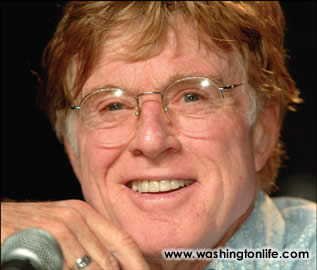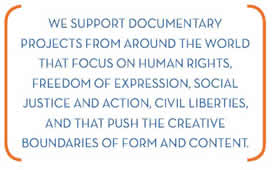POLLYWOOD | ROBERT REDFORD TALKS
 The new start of Sundance... the Documentaries The new start of Sundance... the Documentaries
Since the inception of the Sundance, documentary films have been part of the Festival. As the Institute turns 25, the Documentary Film Program celebrates its tenth anniversary. Prior to the 2006 Festival Robert Redford answered questions highlighting the institute's commitment to documentary filmmaking.
What is the philosophy of documentaries and documentary programming at Sundance? How does this fit into the documentary film program and the whole Sundance mission?
Robert Redford: Sundance Institute mission is simply to discover and develop independent artists and audiences, and from the beginning that has included documentary film. We provide year-round support to documentarians through the Sundance Documentary Fund, Documentary Edit and Story Lab, Composers Labs and of course, the Sundance Film Festival.
At the Festival we've always exhibited documentaries along with features, to bring these extraordinary personal stories from around the world to American audiences and increasingly to worldwide audiences. It is very gratifying to have contributed to the wider acceptance of and interest in documentaries by a broader audience. When you see documentaries like Why We Fight or Born into Brothels, your view of the world and the human condition expands and these days, documentaries have taken the place of televised news as a source of information about what is really going on in the world.
2006 marks not only the 25th anniversary of Sundance Institute but also the 10th year of the Sundance Documentary Fund, which came to us from the Open Society Institute in 2001, and has been augmented with support from the Ford Foundation. We support documentary projects from around the world that focus on human rights, freedom of expression, social justice and action, civil liberties, and that push the creative boundaries of form and content.
Talk about your personal commitment and interest in documentary film.
RR: Documentaries reveal new worlds, real lives and affect social change in a way narratives can't, and documentary filmmakers often risk their lives to bring these stories to us, something that impresses all of us here at Sundance. We're excited when the artists and projects we support enliven the diverse exchange of ideas crucial to developing and maintaining an open society, and engaging citizens around the world with opportunities for meaningful, ongoing discourse about these issues and the human stories within them.
Looking back over the past twenty-five years what has been the most rewarding aspects of Sundance. What do you envision for the future of Sundance?
RR: For me, the most rewarding aspect of Sundance is always the filmmakers. To have the opportunity to work with screenwriters, directors and advisors at the labs at Sundance Village-- to see the growth and watch the stories unfold as part of the process of making a film. We're honored to work with artists who embody the independent spirit and grateful to each of them for sharing with us their extraordinary stories and original voices. I would say the future will harken back to the original mission of discovering and developing independent artists—their creative diversity and risk taking-- and continuing to build audiences..both in the US and abroad. I see us deepening and broadening our current impact through our artistic development programs and Film Festival screenings with the hope that we can play some role in creating a more informed society.

|

